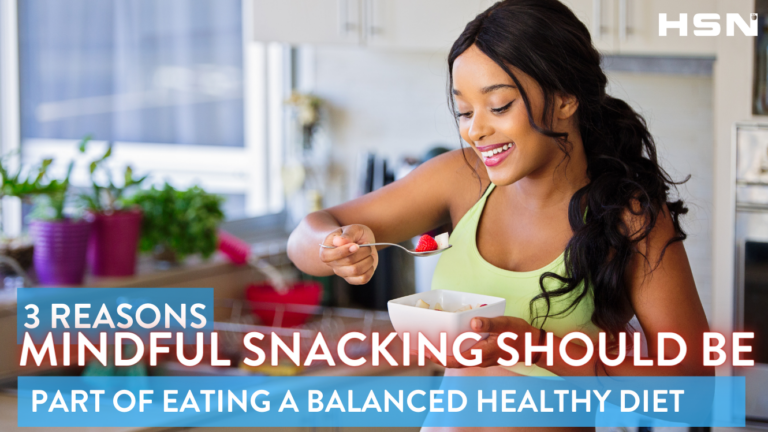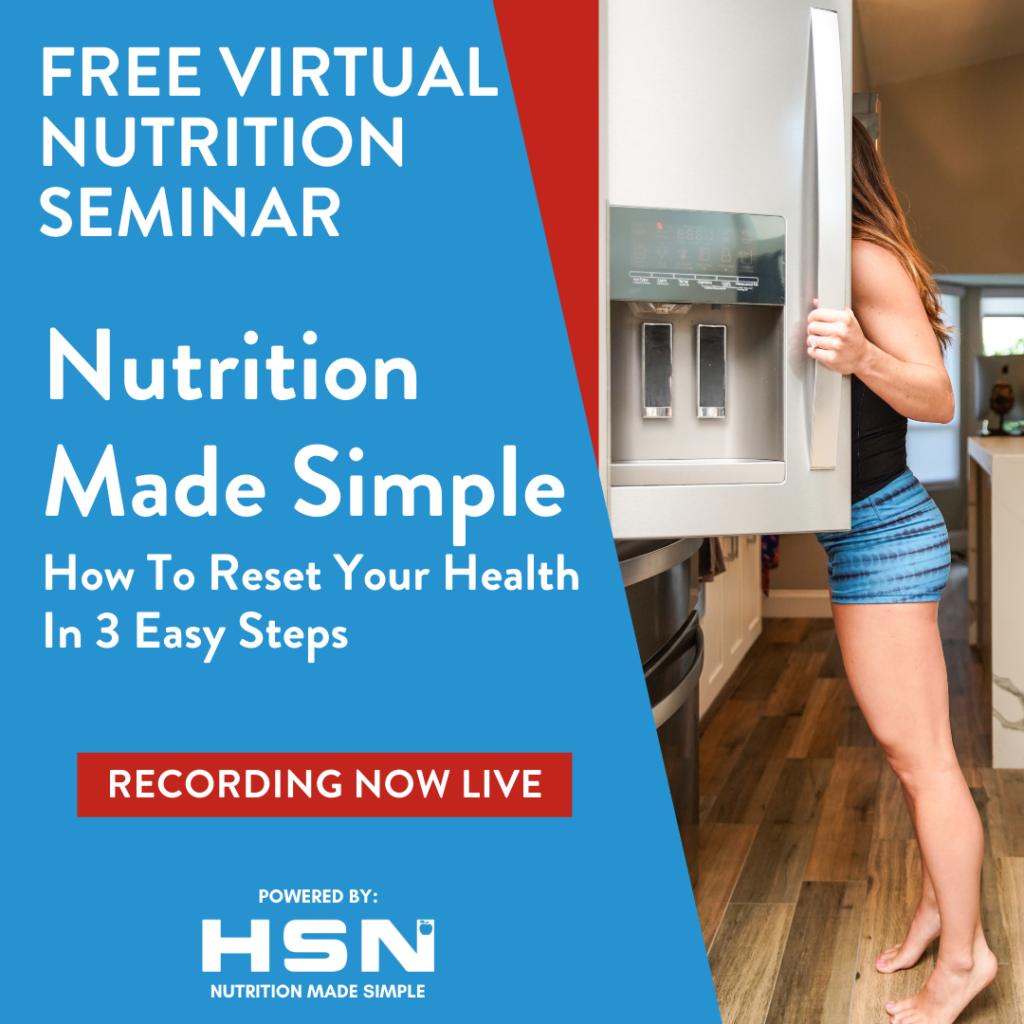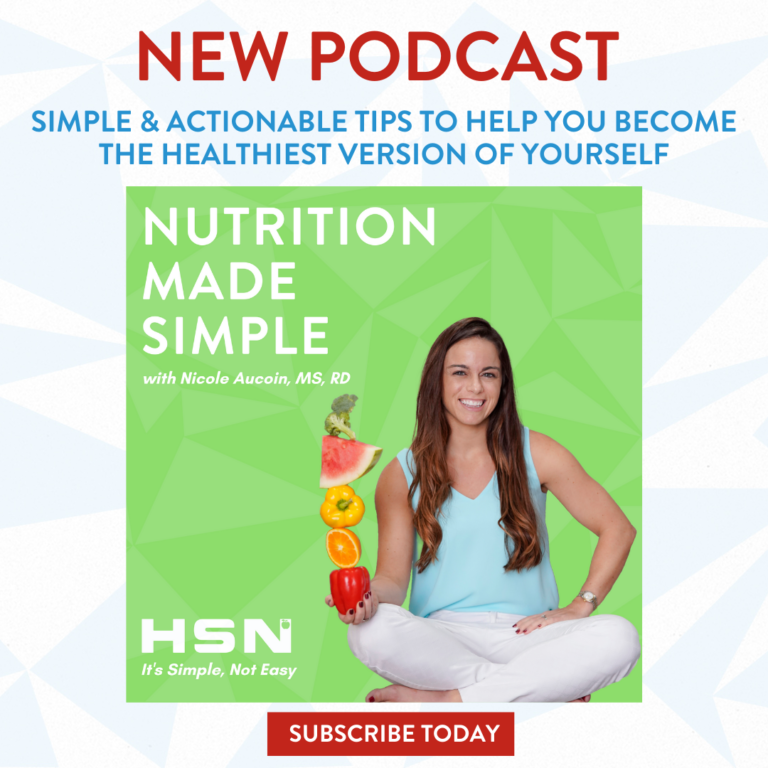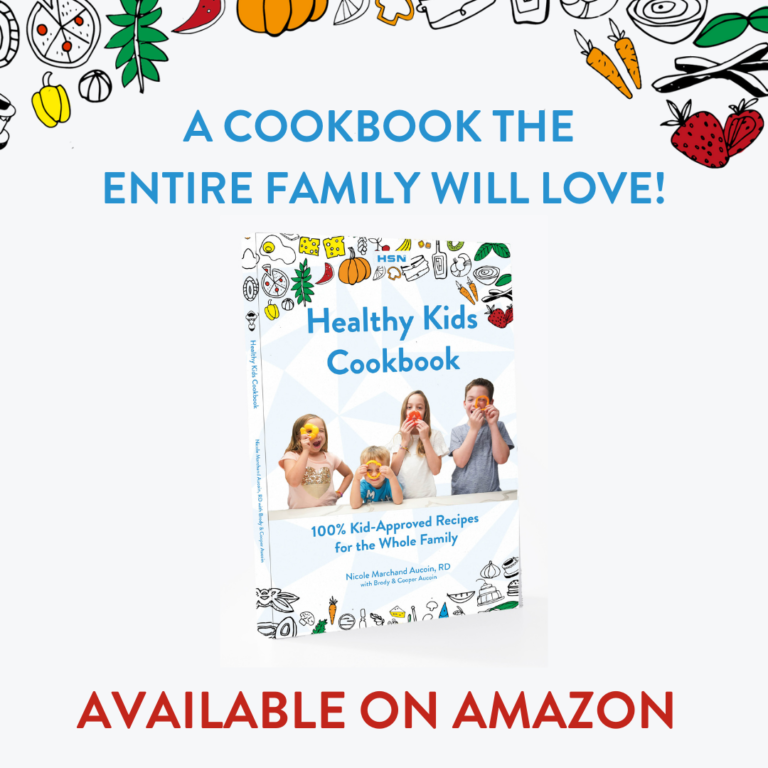In the fast-paced rhythm of modern life, it’s easy for our eating habits to take a backseat, often leaving us ravenous between meals. But what if I told you that the solution to maintaining steady energy levels, curbing cravings, and supporting your overall well-being is closer than you might think? Enter the world of snacking – a practice often frowned upon by many. Looked at as only a sure fire way to eat too many calories leading to unwanted weight gain.
In this blog post, I will chat about the reasons why snacking plays a crucial role in our nutritional journey. Snacking shouldn’t be considered only a bad habit, but should be used as a tool that is often essential for those trying to live a healthy lifestyle.
What Is Considered Snacking?
Snacking refers to consuming small, often quick bites of food between regular meals. It can also be considered a light quick, hurried meal. These mini-meals are usually smaller than main meals, and they serve to provide a bridge between periods of more substantial eating.
The key characteristic of a snack is its smaller portion size compared to a full meal. Additionally snacks are usually less structured, and are eaten outside of the normal eating windows of breakfast, lunch, and dinner.

Why Does Snacking Get A Bad Rap
Often times snacking gets a bad rap, and there are some misconceptions about snacks, their effect on health, and the role they play in helping to maintain a balanced healthy diet.
Some reasons why snacking might have a negative perception include:
Unhealthy Choices: Many popular snack options are not healthy foods. They are high in calories, unhealthy fats, added sugars, and sodium. Consuming these types of unhealthy snacks frequently can lead to weight gain, nutritional deficiencies, and health problems.
Portion Control Issues: Snacking without considering portion sizes can result in overeating and excessive calorie intake, leading to weight gain and potential health issues.
Misalignment with Dietary Goals: If snacks are chosen without considering their nutritional value, they can undermine efforts to maintain a balanced and healthy diet.
Mindless Eating: Snacking can become a mindless habit, leading to overconsumption of empty calories without addressing hunger or nutritional needs.
Lack of Nutrient Density: Some snacks lack essential nutrients like vitamins, minerals, and fiber. Relying heavily on these snacks can contribute to nutrient deficiencies.
Marketing and Advertising: Heavily marketed, highly processed snacks can contribute to the misconception that snacking is all about indulgence and convenience without considering health implications.
Cultural and Social Influences: Cultural norms and social environments can influence snack choices, sometimes leading to the preference for less nutritious options.
Weight Management Concerns: People associate snacking with weight gain, especially if they’re unaware of the importance of choosing healthy, balanced options and practicing portion control.
Not all snacks are created equal! It’s important to note that snacking itself is not inherently bad; it’s the choices we make, and the way we approach snacking that determines its impact on our health.
With informed decisions, a focus on nutrient-dense options, and portion control, snacking can actually be a valuable part of a balanced diet.
3 Reasons Snacking Is Important!
Snacking is a valuable part of a balanced diet! Break through the diet culture noise, and open up your mind despite what you are hearing online.
Reason #1 – Snacking helps curb the appetite
People are busy and believe it or not, sometimes forget to eat! This leaves them feeling ravenous by the time their next meal rolls around. Because of this feeling, they make food choices not in line with their health goals, and eat way too much.
Individuals trying to lose weight struggle with this immensley. Often times hunger due to lack of planning or time managements causes them to miss meals. If they are not good at prepping food, they will eat the first thing they see which is often fast food. Additionally, they will eat a lot of it due to their ravenous state.
Snacking prevents the feeling of extreme hunger, and helps eliminate the feeling of needing to overindulge during a later meal time.
Reason #2 – Can help maintain adequate nutrition
There are a few reasons why someone my not be getting adequate nutrition during their meal times.
An illness is preventing them from being able to eat a full meal in one sitting
They are an athlete that requires a lot of calories, and it’s very hard for them to consume an adequate amount of food at only 3 main meals. There belly simply won’t hold enough food and they become full when trying to consume when their total calorie intake needs to be so high.
They are making poor food choices (Snacking doesn’t help this if they also make poor food choices when snacking)
In scenarios one and two, snacks plays a huge role by providing additional nutrients. If these people didn’t eat snacks, their bodies would not get the nutrition needed in order to maintain a healthy state. They would lose weight and suffer ramifications in their health, or performance.
Reason #3 – Blood sugar balance and added energy
Blood glucose levels drop after several hours of not eating. Sometimes this results in feeling tired or lethargic. Living an active lifestyle is important for many reasons. This being said when a person feels tired or fatigued, they feel like they don’t have enough energy to exercise.
Snacking can help eliminate the feeling of fatigue which helps with motivation to get that workout in. Nobody wants to workout when they are feeling tired and just blah. Eating every 3-4 hours prevents this feeling and will make it more likely you will have the desire to exercise.

Be Mindful Of Your Snack Quality
Part of the reason snacks get a bad rap is because they are associated with food products like chips, mini cakes, cookies, and other foods that have very little nutritional value. These foods contribute to excess calories, but do not provide any nutritional value.
The term “empty calories“, or junk food describes this type of food.
Just like with your main meals, snack foods need to be balanced, and healthy options in order to maintain your health and wellness goals.
At Healthy Steps Nutrition we have three core principles when it comes to nutrition:
Focus on whole foods first

We should start choosing whole food options, and less processed foods. They are packed with sodium, fat, and added sugar.
A simple way to start consuming fewer processed foods is by reshaping your plate using the plate method! The plate method will help you maintain proper portion sizes, and consume a balanced diet.
Focus on balanced nutrition
When we say balance we mean that every meal and snack you consume throughout the day should contain carbohydrates, protein, and fat.
Pairing each meal and snack with all 3 of these macronutrients will keep you fuller longer! Most people will feel their best while fueling their busy days with 40% carbohydrates, 30% fat, and 30% protein.
*Please note that individual breakdowns may vary and this is an average we see with our clients.

Limit processed carbohydrates and added sugar
The AHA recommends no more than 6 teaspoons of sugar (about 24 g) for women and 9 teaspoons for men (about 36 g).
The average person consumes over 150 pounds of sugar per year! That’s 46 teaspoons per day! (about 160+ g)
These stats are not surprising! Sugar is addicting, and is hidden in almost every food product you find in a package.

What Are Some Examples Of Healthy Snacks?
We love a good healthy snack! If you are one of our nutrition clients we give you something called a food options guide. This guide helps build recipes, plus gives ideas to help build snacks, and main meals.
Here are just a few foods that would be great healthy snack choices:
Protein Foods
Cottage cheese low fat option
Greek yogurt
Sliced turkey or chicken
Egg whites
Carbohydrate Foods
Dried fruit
Apple slices
Whole grains (whole wheat bread or wrap)
Raw vegetables
Fat Foods
Nut butter
Avocado or guacamole
Nuts
Whole hardboiled egg (combo food protein and fat)
If you are looking for some snacking recipes, we have a ton of great options on the recipes page of our website.
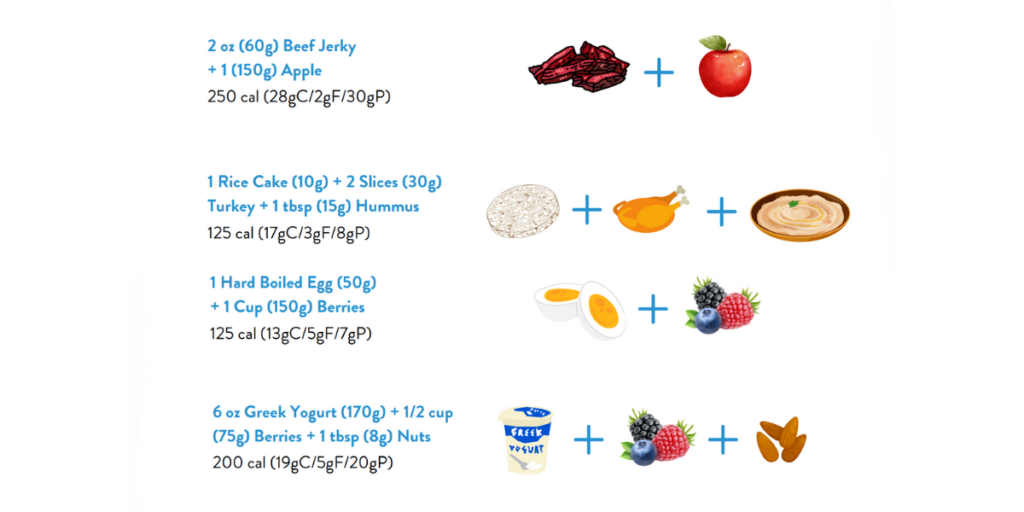
Pro Tips For Smart Snacking Habits
The little things matter! Assessing whether or not we are really hungry when we want a snack versus the situation that we are just eating out of boredom will help when trying to prevent overeating.
We’ve already discussed eating a “balanced diet”, and avoiding junk food or empty calories. But what are some other things that can be done in order to be a successful snacker?
Practice Mindfulness When Eating
In our world, we practice a holistic approach when it comes to nutrition. This means that we understand so much more goes into food choices than just choosing what to eat. Things like, stress, lack of exercise, and lack of sleep can really affect our food choices. We can all be emotional eaters at times!
When we see clients, we like to find out where they are related to each of these pillars in the holistic framework. Doing so can help the client identify if they are really hungry when choosing to snack, or if there are other factors playing into their food choices.
Have you ever heard of intuitive eating?
Intuitive eating will help make the decision of hunger vs. boredom for you in addition to assessing your hunger and fullness cues.
Rating your hunger and fullness every time you eat helps you tune into your bodies natural cues, and establish your feelings of hunger and fullness so you begin to recognize them on a regular basis. Remember that hunger isn’t only felt in the stomach. Feelings like being shaky, irritable, having indigestion, and irritability are all signs of hunger.
When beginning intuitive eating, be mindful from start to finish during your meals. Distracted eating only disengages you from your bodies natural cues. Eating slowly will allow for you to recognize how you are feeling after each bite in order to assess your fullness cues.
Don’t Have a Candy Dish
Changing your environment will change your life. Take the temptations to eat empty calories out of your life by eliminating things like candy dishes or snack drawers! Replace them with healthy snacks such as a fruit bowl or roasted chickpeas.

Clean Out Your Fridge And Your Pantry
This goes along with changing your environment, and setting yourself up with healthy snack habits. It’s so much easier to make healthy snacks happen when you aren’t bypassing “unhealthy choices” along the way. Even things like whole grain crackers, and dark chocolate can be deceiving. Read food labels to find out if these food items are really made with whole grains, and are truly dark chocolate. If they are not – pitch them.
Throw out anything expired
Toss condiments, and processed foods that are high in added sugar and “empty calories”
Check the fat & sodium content of packaged foods. If there is saturated fat, or trans fat in these processed items, consider getting rid of them.
Strategically place your whole foods
Remember that whole foods first things I talked about earlier! Now is the time to put the whole foods at the front of the fridge. Eat them first and use your new found intuitive eating skills to assess if you are really hungry for that ‘junk food’.
Wrap Up
Hopefully after reading this you are able to see that snacking is important! A satisfying snack can increase your happiness, and elevate your overall mood. Eating snacks is no different than eating main meals in the sense that we want them to be pro health, and not empty calories only used in an attempt to make us feel better during a stressful time or situation.
If you are reading this and struggle with the idea of snacking, or need help learning how to build balanced snacks, please reach out! We have a ton of free resources on our website. Additionally we can pair you with a nutrition coach in your area!
Until then, happy snacking!

